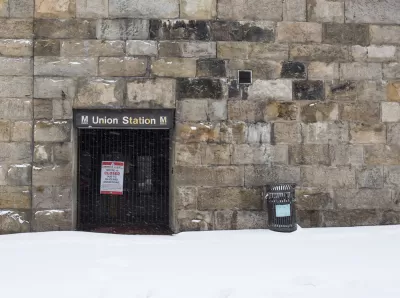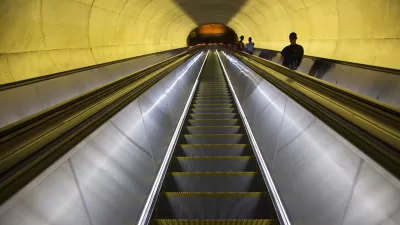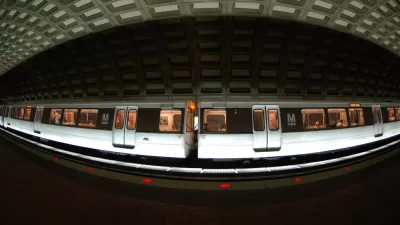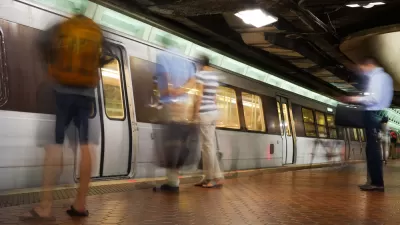For months, transit advocates have dreaded the decision to raise fares and cut service throughout the D.C. Metro system. That day arrived last week. Changes take effect on July 1.

"[D.C.] Metro’s board gave final approval Thursday to fare increases and service cuts as part of an austere fiscal 2018 budget aimed at easing the transit agency’s financial struggles," reports Faiz Siddiqui.
The system's first fare hike in the last three years will increase fares for rail transit in peak hours by 10 cents. Rail transit fares during off-peak hours will increase by 25 cents. Bus fares will also increase by 25 cents.
"As part of changes approved in the $1.8 billion operating budget, riders also will spend more time on platforms, as trains arrive about every eight minutes across most of the system, with more frequent service in the downtown core," adds Siddiqui. "But there will be fewer trains overall on five of six rail lines."
The article includes more details about the changes coming to the Metro system, including an expected 500 layoffs, in addition to the 500 employees already laid off. Siddiqui quotes extensively from the justifications for the cuts from soundbites by Metro General Manager Paul J. Wiedefeld.
FULL STORY: Metro makes it official: Higher fares, reduced service coming July 1

Alabama: Trump Terminates Settlements for Black Communities Harmed By Raw Sewage
Trump deemed the landmark civil rights agreement “illegal DEI and environmental justice policy.”

Study: Maui’s Plan to Convert Vacation Rentals to Long-Term Housing Could Cause Nearly $1 Billion Economic Loss
The plan would reduce visitor accommodation by 25% resulting in 1,900 jobs lost.

Planetizen Federal Action Tracker
A weekly monitor of how Trump’s orders and actions are impacting planners and planning in America.

Wind Energy on the Rise Despite Federal Policy Reversal
The Trump administration is revoking federal support for renewable energy, but demand for new projects continues unabated.

Passengers Flock to Caltrain After Electrification
The new electric trains are running faster and more reliably, leading to strong ridership growth on the Bay Area rail system.

Texas Churches Rally Behind ‘Yes in God’s Back Yard’ Legislation
Religious leaders want the state to reduce zoning regulations to streamline leasing church-owned land to housing developers.
Urban Design for Planners 1: Software Tools
This six-course series explores essential urban design concepts using open source software and equips planners with the tools they need to participate fully in the urban design process.
Planning for Universal Design
Learn the tools for implementing Universal Design in planning regulations.
Caltrans
Smith Gee Studio
Institute for Housing and Urban Development Studies (IHS)
City of Grandview
Harvard GSD Executive Education
Toledo-Lucas County Plan Commissions
Salt Lake City
NYU Wagner Graduate School of Public Service





























